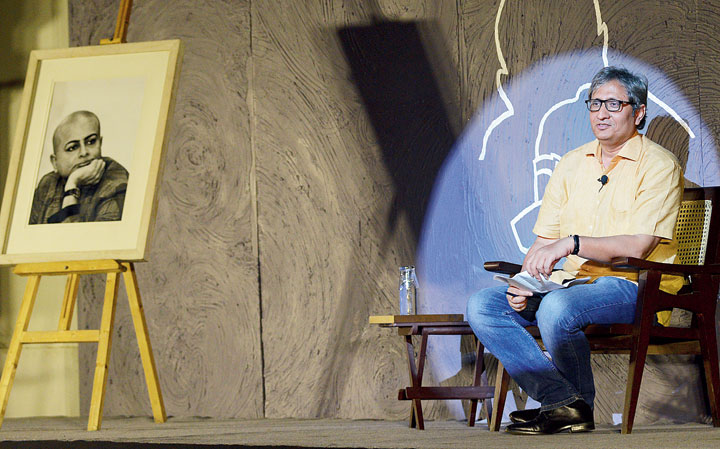The land of Tagore is suffering from a famine of conscience (vivek ka akaal) or else there would have been massive protests against the National Register of Citizens, journalist Ravish Kumar told a city audience on Saturday.
“Bengal was hit by a devastating famine in 1943 that killed lakhs.… The signals of another famine are visible. It is the famine of conscience. People are scouting for documents to jump into this famine. This famine is being brought about by a register called the National Register of Citizens,” Kumar said while delivering the Rituparno Ghosh Memorial Lecture 2019, organised by Pratyay Gender Trust.
The NRC, if it happens, will engineer a new Bengal, he said. “Once NRC happens, two persons who have known each other for decades will start looking at each other with suspicion unless their names are on the register.”
The National Register of Citizens has the names of all Indian citizens. Before being updated in Assam, only once before had an NRC been prepared, in 1951.
Kumar recollected how home minister Amit Shah assured members of all but one community when he sought to address the rising panic over NRC in Bengal.
“I assure all refugees — Hindu, Sikh, Jain, Buddhist and Christian — that the Government of India would not ask any one of them to leave the country,” Shah had said on October 1, on the eve of Mahatma Gandhi’s birth anniversary, at the Netaji Indoor Stadium.
“But you were silent. Nobody told him that he is not the home minister of India minus 15 crore Muslims,” Kumar told the audience. “Bengal is slipping from your hands. If you can’t see, then you don’t want to see. Get out, hit the streets and tell people that you want to know each other from the heart, not by their serial number on a register.”
The programme, in its sixth edition, invites speakers from diverse backgrounds to celebrate the pluralism and diversity of the late filmmaker.
This was the first time Kumar was speaking at a public forum in Calcutta since receiving the Ramon Magsaysay Award for 2019. The auditorium of Basusree cinema near Kalighat was packed and Ravish Kumar was flooded with questions.
A beautiful rendition of a Kabir verse set the tone before Kumar took stage. “Hindu kehet hai Ram hamara, Musalman Rehmana. Apas mein dou lare martu hain, maram koi na jana (Hindus claim Ram, Muslims Rahman. The two fight, but nobody understands the essence).
There was a problem with the microphone as Kumar started to speak. Asking for another mic, Kumar quipped, tongue firmly in cheek: “If one fails, the other will keep working. Just like economy fails but politics goes on.”










